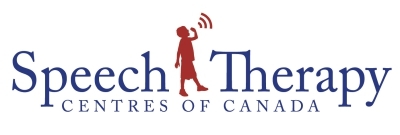With exam time around the corner, many students, especially those with learning disabilities and/or acquired brain injuries (ABI) are starting to feel the pressure and stress that comes along with preparing for finals. These times are stressful, but there are strategies for making study time more effective and manageable.
Schedule and routine– create a study schedule in advance. Allow yourself extra time for courses that you find more difficult. Keep this schedule posted somewhere you will see it, e.g., at your desk, on the fridge, or beside your bed. Having this visual guide may help you feel more at ease and prepared, knowing you have thought out studying well in advance and know what day you will be working on what course.
Study Space- Set up and define your study space. This involves choosing a room or location that has minimal distractions. For some people, this is their bedroom, for others it’s a library or a nearby coffee shop.
Organization– Make sure your study space is organized, for example, keep all notes together in one binder or folder. Knowing where your materials are and having them organized and accessible makes study time more efficient.
Come prepared– predict what materials you will need to study. This may include a highlighter, scrap paper for notes or a stop watch. Pack you bag ahead of time if studying outside of the home to ensure you will have all the materials you will need.
Reading– Many students find that when they are reading they get distracted or zone out and after finishing a chapter they have not retained any of the information. To help understand and retain the information you are reading, try and use active reading strategies. This includes:
Surveying the text ahead of time- is the chapter long? If so, should I allot time for a break in my schedule? Will I need to modify my environment to eliminate any distractions? Asking yourself these questions helps you become more aware of your energy and attention levels, and thus more independent in managing your studying.
Predicting what will be covered in the chapter. This helps you focus and hone in on the main idea and relevant information, looking for key concepts you anticipate will be discussed.
Reading- while you are reading try and highlight or underline important concepts or definitions. Write down key words in the margins of the text. These strategies help you retain the information, but also helps to save time when you go back to review the text closer to the exam (s).
Recite- after reading 1-2 pages, pause, look away from the text and recite the information out loud. You can summarize the information to yourself or a study partner. This strategy helps you check your comprehension of the material; what you understand, what you do not yet understand and where the breakdown occurred. This also helps with memorization of the material.
Review- at the end of each chapter, review the highlighted text and make sure you understand the main information. Make notes on the key concepts you covered in the chapter.
These are only a few of many study strategies and as very student is different, some may work better for you than others. You can work with your Speech-Language Pathologist to help determine you areas of strengths and weaknesses and create a study plan that will work best for you! Best of luck!
Ashleigh Wishen, M.H.Sc. S-LP (C)
Speech-Language Pathologist, Reg. CASLPO
